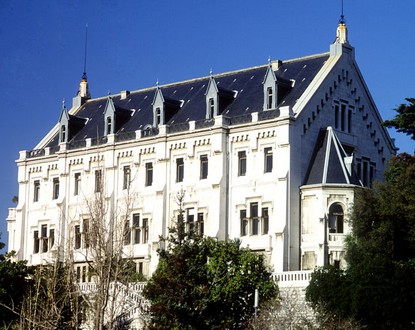The University of Nice Sophia Antipolis (UNS) will celebrate its 50th anniversary in 2015. It is, therefore, a young university characterized particularly by its multidisciplinary approach, intensive research activity, international reach, and strong local presence through its various locations.
The University of Nice Sophia Antipolis (UNS) welcomes over 26,000 students each year, including around 1,400 doctoral candidates and nearly 20% international students.
It has more than 1,600 teachers and research professors and hosts over 1,000 researchers within mixed structures with research organizations, alongside nearly 1,100 administrative and technical staff.
Its total budget is €237 million, with approximately 25% own resources and 75% state funding.
Open to the world, UNS hosts more than 5,000 international students from over 130 nationalities, benefits from more than 500 international agreements on all continents, and maintains several research laboratories abroad (in the Maghreb, Singapore, China, India, etc.) as well as a Campus in Computer Science in Vietnam. It offers over thirty degrees in partnership with foreign universities.
France is increasingly academically educated. According to the 2014 OECD outlook “Education at a Glance,” 43% of 25-34-year-olds have post-baccalaureate degrees, compared to 20% of 55-64-year-olds. However, these good results disguise paths too often interrupted by reorientations and repeats at the end of the first year of a bachelor’s degree.
The year 2013/2014 was marked by the success of MOOCs.
Since the launch of the France Université Numérique (FUN) platform in January 2014, nearly 400,000 enrollments in one of the 50 MOOCs available on FUN have been recorded. There are also 210 referees in 155 institutions and the establishment of interactive communities of learners in initial and continuing education.
Appearing in 2008 and rapidly growing, MOOCs (Massive Open Online Courses) are courses open to all and provided remotely.
Student mobility enhanced
This is the main goal of the Erasmus + program, a new European program for 2014-2020, in which France has been involved, to expand and extend it to young people in professional and technological fields and apprentices. With a budget of over 14 billion euros, a 40% increase compared to the 2007-2013 period, Erasmus + will allow more than 5 million young Europeans, including 2 million students, to study, train, and engage in volunteer activities abroad. France is now the second largest beneficiary of the Erasmus programs. The focus, from 2014 onwards, will primarily be on students from professional and technological courses. Concurrently, France is strengthening mobility agreements, especially with emerging countries in South America and Asia.
The measures proposed in the academy promote outbound student mobility: for the 3rd year, the University of Nice Sophia Antipolis organizes the “Mobility Week” with partner association ESN-Nice, held over a week at the beginning of October, to promote mobility experiences abroad.


